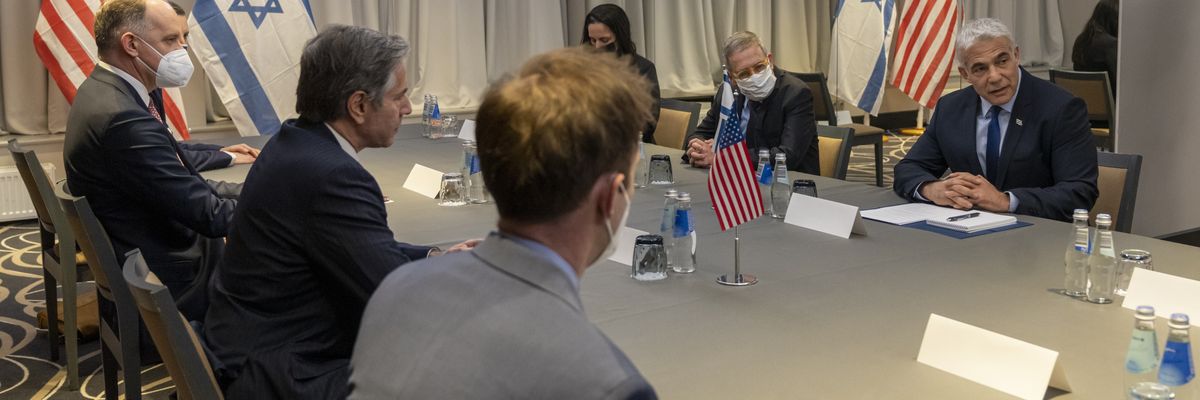A current senior Israeli military official reportedly said last week during a meeting with U.S. State and Defense Department officials that it was a mistake for President Trump to withdraw from the Iran nuclear agreement.
According to Axios, retired Brig. Gen. Dror Shalom — who is head of the political-military bureau in the Israeli Ministry of Defense and previously led the country’s military intelligence research and analysis division — “stressed” in the private meeting that “the withdrawal from the Iran deal was a mistake that brought Iran closer to a nuclear weapon and created a worse situation.”
Shalom’s comments contradict the official Israeli government position but they also line up with a slew of senior Israeli security establishment figures who have said recently that either pulling out of the JCPOA was a mistake or the United States should negotiate re-entry.
Added to that list this week was former Military Intelligence Director Maj. Gen. (Res.) Tamir Hayman, who told right-wing newspaper Israel Hayom that the United States rejoining the deal would serve Israeli interests.
“[T]he situation that would have happened once the nuclear deal elapsed [in 2030] wouldn't have been as bad as the current situation, as Iran has stockpiled so much enriched material and its abilities have advanced beyond what the deal had allowed it to pursue,” he said, adding that, "Therefore, my conclusion is that in the reality of here and now, reaching a deal is the right thing,"
Hayman also said that a renewed JCPOA “would diminish the offset the amount of enriched uranium Iran has; it would set it back and it would buy [us] a very long time because enrichment takes a long time."
Negotiations to return to the deal between the United States, Europe, China, Russia, and Iran have entered the final stages, with the U.S. designation of Iran’s Revolutionary Guard Corps as a foreign terrorist group — which Trump did to make it politically more difficult for any future administration to return to the JCPOA — reportedly being one of the last sticking points.
Just this week, Sen. Rand Paul — who has recently started voicing support for reentry to the deal — told a senior Biden administration official that it should seriously consider delisting the IRGC.
“I think we have to be open to it,” Paul said.














